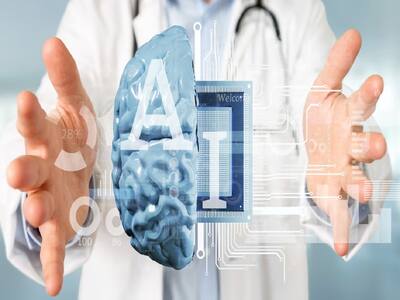
From enhancing diagnostics to personalising treatment plans, the integration of AI and ML into health systems offer tremendous potential to improve patient care.
Artificial intelligence (AI) and machine learning (ML) have revolutionised the healthcare industry, enabling health systems to unlock valuable insights from vast amounts of patient data. By leveraging these technologies, healthcare providers can enhance patient care, improve diagnostics, and streamline operations.
Speaking to TheHealthSite, Dr. Varun Garg, Co-Founder & CEO, DocPlix, points out seven innovative ways health systems are utilising AI and machine learning to transform patient care.
Enhanced Diagnostics
AI and ML algorithms have the potential to analyze large datasets, including medical images, patient records, and genetic information, to improve diagnostics accuracy. Deep learning models can assist radiologists in detecting abnormalities and diagnosing diseases such as cancer, pneumonia, and heart conditions. By leveraging AI, health systems can speed up diagnoses, reduce errors, and improve patient outcomes.
Predictive Analytics
Health systems are utilizing AI and ML to develop predictive models that identify patients at risk of developing certain conditions. By analyzing patient data, including medical history, genetics, lifestyle factors, and social determinants of health, algorithms can predict the likelihood of diseases like diabetes, hypertension, or mental health disorders. This enables proactive interventions, personalized treatment plans, and preventive care strategies.
Personalised Medicine
AI and ML enable the development of precision medicine approaches tailored to individual patients. By analysing patient data, including genomic information and treatment outcomes, algorithms can identify biomarkers that predict treatment response and adverse reactions. Health systems can leverage this knowledge to deliver targeted therapies, optimise medication regimens, and reduce the risk of adverse drug reactions.
Virtual Assistants and Chatbots
AI-powered virtual assistants and chatbots are transforming patient interactions and improving access to care. These intelligent systems can provide patients with real-time responses to their health concerns, offer personalised recommendations, and triage cases based on severity. Virtual assistants also support healthcare professionals by automating administrative tasks, freeing up their time for direct patient care.
READ RELATED: 10 Best Kirkland Brand Cheeses You Should Buy at Costco
Remote Patient Monitoring
AI and ML technologies enable remote patient monitoring, which enhances patient care and facilitates early intervention. Wearable devices and sensors collect continuous patient data, such as heart rate, blood pressure, and glucose levels. AI algorithms analyze this data in real-time, alerting healthcare providers to any significant changes or potential health risks. Remote patient monitoring reduces hospital readmissions, improves chronic disease management, and enhances patient autonomy.
Resource Optimization
Health systems leverage AI and ML algorithms to optimize resource allocation, such as hospital bed management, staff scheduling, and supply chain logistics. Predictive models analyze historical data and real-time inputs to forecast patient demand, allowing hospitals to allocate resources efficiently. This not only improves patient flow but also reduces wait times, enhances operational efficiency, and ensures better utilization of healthcare resources.
Fraud Detection and Security
AI and ML play a crucial role in safeguarding patient data and detecting fraudulent activities. Machine learning algorithms can analyze patterns in claims data and electronic health records to identify potential fraud, waste, and abuse. By detecting anomalies and suspicious patterns, health systems can prevent fraud, protect patient privacy, and ensure the integrity of healthcare systems.
Conclusion
The integration of AI and machine learning into health systems has brought remarkable advancements to patient care. From enhancing diagnostics and predicting health risks to personalising treatment plans and optimising resource allocation, these technologies offer tremendous potential to improve patient outcomes and streamline healthcare delivery.
However, Dr. Varun Garg, notes that as AI continues to evolve, health systems must embrace ethical considerations, data privacy, and transparent implementation to maximise the benefits of AI and machine learning while ensuring patient trust and safety.
Total Wellness is now just a click away.
Follow us on
window.addEventListener(‘load’, (event) => {
// $(document).ready(function(){
$(‘#commentbtn’).on(“click”,function(){
(function(d, s, id) { var js, fjs = d.getElementsByTagName(s)[0]; if (d.getElementById(id)) return; js = d.createElement(s); js.id = id; js.src = “//connect.facebook.net/en_US/sdk.js#xfbml=1&version=v2.3”; fjs.parentNode.insertBefore(js, fjs);}(document, ‘script’, ‘facebook-jssdk’));
$(“.cmntbox”).toggle();
});
// });
});








